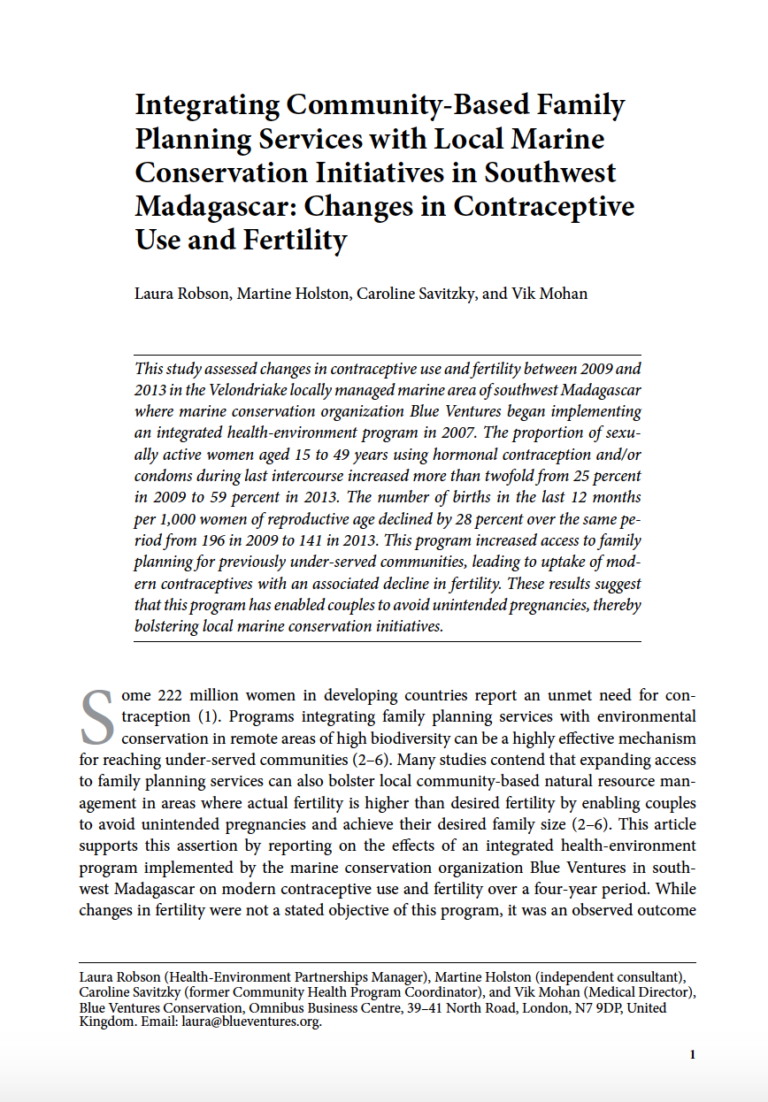Abstract
This study assessed changes in contraceptive use and fertility between 2009 and 2013 in the Velondriake locally managed marine area of southwest Madagascar where marine conservation organisation Blue Ventures began implementing an integrated health-environment program in 2007. The proportion of sexually active women aged 15 to 49 years using hormonal contraception and/or condoms during last intercourse increased more than twofold from 25 percent in 2009 to 59 percent in 2013. The number of births in the last 12 months per 1,000 women of reproductive age declined by 20 percent over the same period from 178 in 2009 to 143 in 2013. This program increased access to family planning for previously under-served communities, leading to uptake of modern contraceptives with an associated decline in fertility. These results suggest that this program has enabled couples to avoid unintended pregnancies, thereby bolstering local marine conservation initiatives.


